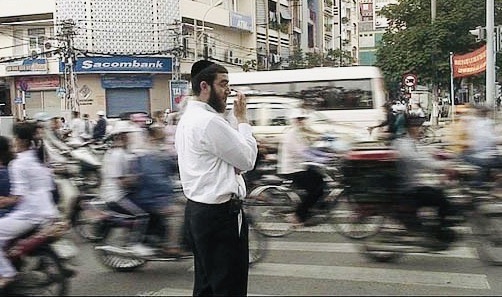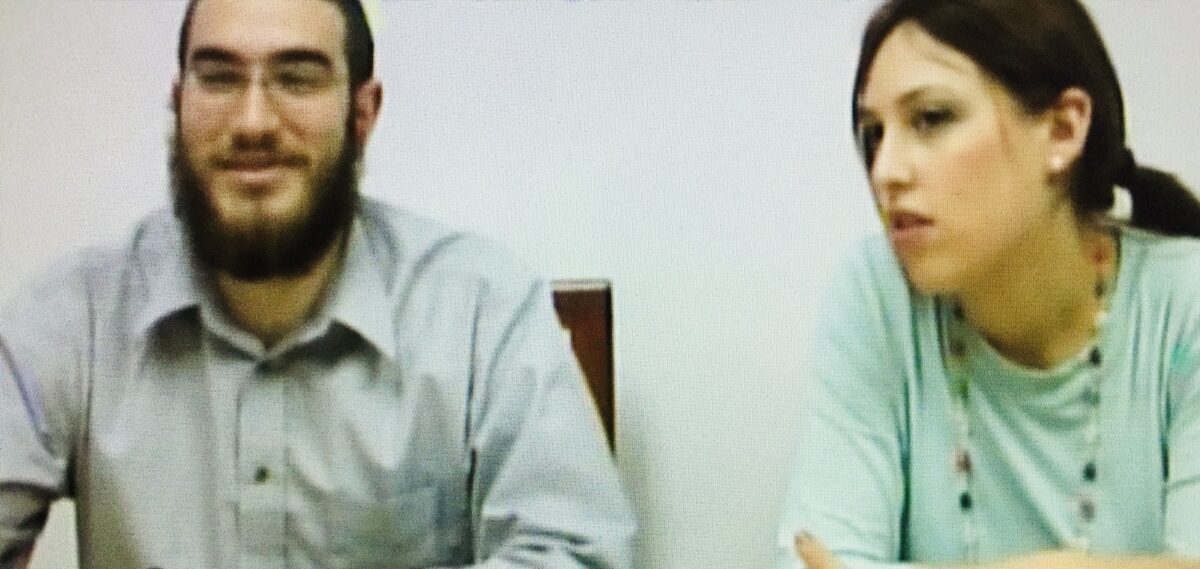Ido and Yael Zand’s “fish-out-of-water” documentary, Gut Shabbes Vietnam, is captivatingly intriguing and appealing.
Now available on the ChaiFlicks streaming platform, which specializes in Jewish and Israeli topics, it is mostly set in Ho Chi Minh City, which, until Vietnam’s unification in 1975, was known as Saigon.
The film opens in 2006 in Jerusalem as a young Israeli couple, Menachem and Rachel Hartman, prepare for a special mission. They have been chosen to be Chabad’s first representatives in Vietnam, a nation of 80 million with barely a minyan of Jews.
Chabad, an ultra-Orthodox organization, sends emissaries to the furthest corners of the globe to win the hearts and minds of Jewish travellers. And now Vietnam, an exotic country in the tropics under communist rule, has been selected as one of its distant outposts.
No one can blame the Hartmans for being a little apprehensive and nervous as they bid good-bye to relatives and friends in Jerusalem.
“Never in our wildest dreams did we think we’d go to Vietnam,” says Menachem, a mild-mannered and patient man. “Our first reaction was to say no.” He adds, “I’m a little daunted. We’re afraid we may not succeed there.”
The movers packing their household possessions and kosher food supplies are completely surprised by their destination. “There are no Jews, or kosher food, in Vietnam,” says one of them. “How will you manage?”
At a going-away meal, Menachem’s father sounds an ominous note: “They’re stepping into a lion’s den.” His mother is just as flabbergasted: “They’ll be like a couple on the moon.”
The Hartmans and their baby son Levi leave Israel with one-way airplane tickets. “This is a mission for life,” Menachem says.
As they’re driven to their apartment in the center of Ho Chi Minh, a frenetic and dynamic city, they see hundreds, if not thousands, of motor scooters clogging the road. This is not unusual. Most Vietnamese cannot afford cars.
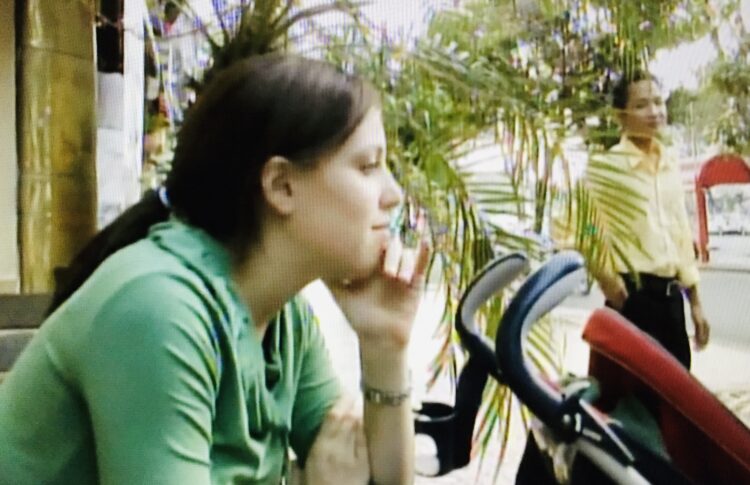
Racheli’s first impression of their non-descript residential building is negative. “What a smell of mildew,” she says. Steeped in narrow haredi values and notions, she considers the Vietnamese “strange people” and Vietnam a “strange country.”
As Menachem settles in, he discovers there are perhaps 70 Jews in all of Vietnam. Dr. Rafi Kot, the Israeli director of a chain of local medical clinics, believes Vietnam is home to 14 Israelis. He warns the Hartmans they may encounter problems because they run a religious organization in a communist land. And he tells them they “stick out” as foreigners.
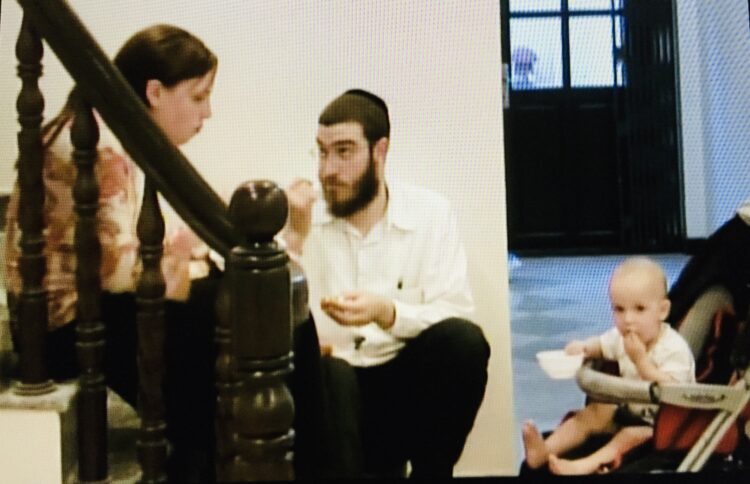
Since their container has not yet arrived, they must make certain allowances on their first night in the country. They eat a meal on the steps leading to the upper floor, and they sleep on the floor.
On top of it all, Racheli is having a hard time adjusting to the horrendous traffic. “It’s so scary,” she says in a reference to the scooters that never stop for pedestrians trying to cross roads.
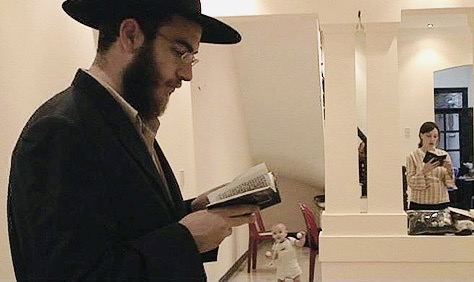
Being provincial, she is alienated by the Vietnamese cuisine. “They eat disgusting things,” she complains. “I’m so lucky I’m Jewish and eat kosher food.” And speaking only Hebrew and English, she feels “totally isolated.” She confesses she has no contact with the “outside world.”
A few hours before Rosh Hashanah, their container finally arrives. But as she gets ready for the holiday, she despairs. “We’ll never fit in here.” Yet there is a silver lining. As she puts it, “We are special. We are the Chosen People.”
Much to their delight, their Rosh Hashanah communal dinner attracts 40 foreign travellers, 30 local Jews and five Vietnamese women.
It would appear that Chabad has got off to an auspicious start in Ho Chi Minh City. Today, Chabad House provides kosher meals, accommodation and Torah lessons on a regular basis.
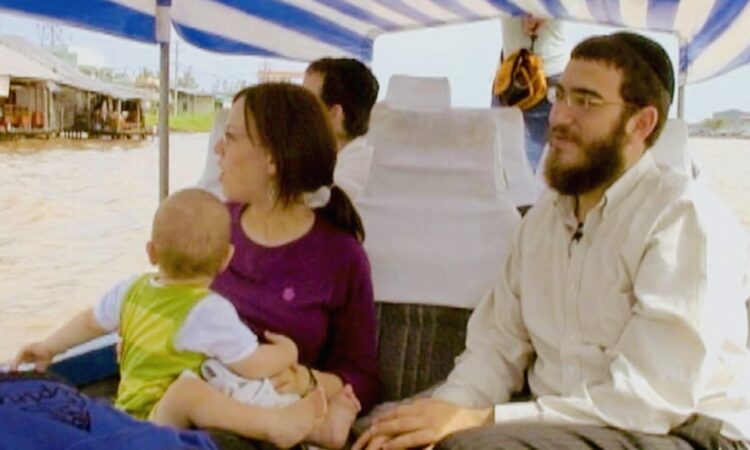
As far as Menachem is concerned, they will remain in Vietnam until the arrival of the messiah — which means they are here to stay indefinitely.
Gut Shabbes Vietnam distills the essence of their mission with empathy and charm.
